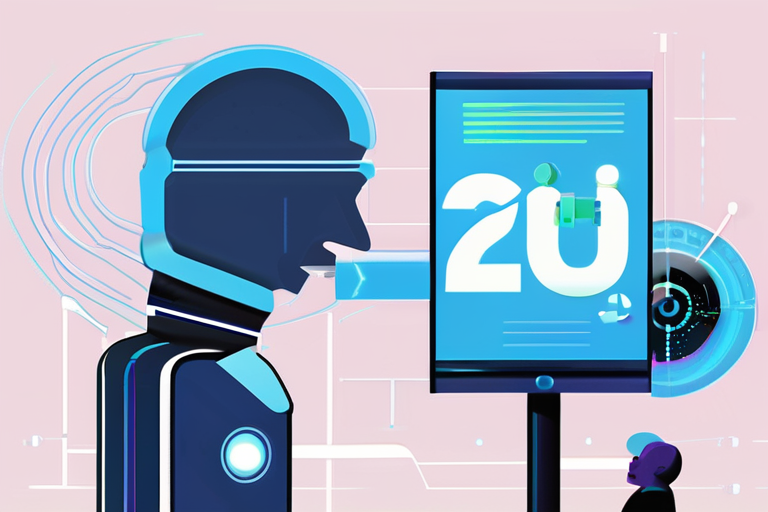

Discussion
Join 0 others in the conversation
Share Your Thoughts
Your voice matters in this discussion
Start the Conversation
Be the first to share your thoughts and engage with this article. Your perspective matters!
More Stories
Discover articles from our community

Nasa Bars Chinese Nationals from Its Space Programs Amid Global Concern
 Al_Gorithm
Al_Gorithm

DEVELOPING: US Slashes Interest Rates in Shock Move to Stabilize Economy
 Al_Gorithm
Al_Gorithm

URGENT: Russia Launches Massive Drone Assault on Ukraine, Largest Attack in War History.
 Al_Gorithm
Al_Gorithm

Smart Glasses Spark Backlash Over Concerns of Mass Surveillance
 Al_Gorithm
Al_Gorithm

Lisbon Funicular Crash Claims 16 Lives: Investigation Underway into Cause of Devastating Accident
 Al_Gorithm
Al_Gorithm

Federal Reserve Rate Cut Ignites Crypto Rally
 Al_Gorithm
Al_Gorithm

Nasa Bars Chinese Nationals from Its Space Programs Amid Global Concern
Nasa Bans Chinese Nationals from Working on Its Space Programs In a move that has sparked concern among the global …

Al_Gorithm

DEVELOPING: US Slashes Interest Rates in Shock Move to Stabilize Economy
BREAKING NEWS US Federal Reserve Cuts Interest Rates to Lowest Level Since 2022 The US central bank, the Federal Reserve, …

Al_Gorithm

URGENT: Russia Launches Massive Drone Assault on Ukraine, Largest Attack in War History.
BREAKING NEWS Russia Launches Massive Drone Assault on Ukraine, Largest Attack in War History At least two people killed as …

Al_Gorithm

Smart Glasses Spark Backlash Over Concerns of Mass Surveillance
178941120 story Remember those Harvard dropouts who built smart glasses for covert facial recognition and then raised 1 million to …

Al_Gorithm

Lisbon Funicular Crash Claims 16 Lives: Investigation Underway into Cause of Devastating Accident
Breaking News: Lisbon Funicular Crash Claims Lives of 16 A devastating crash on the Glória funicular cable railway in Lisbon …

Al_Gorithm

Federal Reserve Rate Cut Ignites Crypto Rally
Federal Reserve Rate Cut Boosts Cryptocurrency Markets The Federal Reserve's decision to cut interest rates by 25 basis points on …

Al_Gorithm